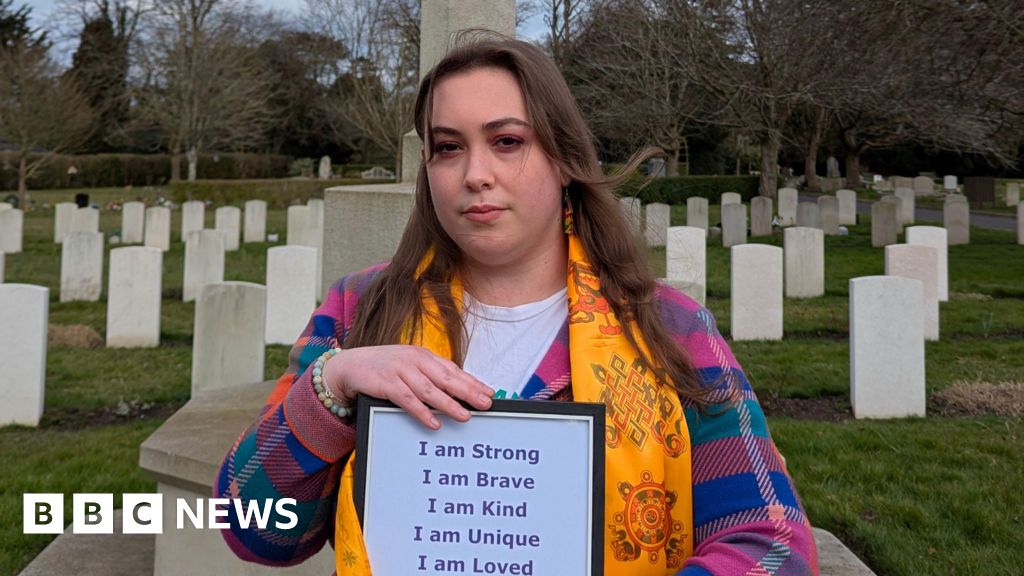
Photojournalist Ed Gold says mental health project was toughest
How did your country report this? Share your view in the comments.
Diverging Reports Breakdown
Photojournalist Ed Gold says mental health project was toughest
Mental health project was photographer’s toughest yet. Ed Gold interviewed 30 people living across Essex to build a picture of what life was like battling mental health struggles. He hoped the six-week project would benefit the Lampard Inquiry, which is analysing 2,000 deaths at NHS inpatient units. “I want people to know that there are others who care, who see them and are giving them a voice,” said the self-taught photographer, who has also taken photos in Ukraine. He said: “I almost feel like it’s a never-ending project, I just can’t see how it will ever end”
1 hour ago Share Save Lewis Adams BBC News, Essex Share Save
Ed Gold/Positive Futures Claire Osborne said taking part in the project was “memorable and meaningful”
A photojournalist who had witnessed war in Afghanistan said a new project focused on mental health was his toughest yet. Ed Gold interviewed 30 people living across Essex to build a picture of what life was like battling mental health struggles. He hoped the six-week project would benefit the Lampard Inquiry, which is analysing 2,000 deaths at NHS inpatient units. “I want people to know that there are others who care, who see them and are giving them a voice,” Mr Gold said.
He became aware of how many people struggled with their mental health while speaking with baristas at a cafe in Colchester in winter 2024. “The more I spoke with all of them, the more I was taken aback,” said the self-taught photographer, who published the images in his Positive Futures magazine. “I never realised just how many people were struggling with their mental health, taking antidepressants and seeing therapists.”
Ed Gold/Positive Futures Mr Gold said photographing people such as Kaya, above, had taught him more about mental health
Mr Gold hoped empowering people to speak about their difficulties in real time would give others a greater understanding. The Lampard Inquiry has been looking at deaths in Essex, but the photographer said lessons should be learned before people died. His interviews focused on 15 men and 15 women, aged 13-39, and took place in Colchester, Clacton-on-Sea and Braintree. “I was moved to tears once or twice from various stories; it’s probably been the toughest project I’ve ever taken on,” said Mr Gold, who has also taken photos in Ukraine. “It also gave me a huge frustration because I found so many people were being let down.”
Ed Gold/Positive Futures Ethan was pictured by Mr Gold on Colchester High Street
He explained one interview left him feeling obliged to take the person to hospital, such were his concerns about their welfare. “I became angry and frustrated at people not being given the help they need,” Mr Gold said. “They were in tears and total despair, but not getting anywhere at all.”
Ed Gold/Positive Futures Erin was another person who was interviewed in Colchester
Mr Gold said that while he hoped his work would inspire conversation, he feared radical improvements in mental health care were far away. He added: “I almost feel like it’s a never-ending project, I just can’t see how it will ever end.” If you have been affected by this story or would like support then you can find organisations that offer help and information at the BBC Action Line.
Follow Essex news on BBC Sounds, Facebook, Instagram and X.
Source: https://www.bbc.com/news/articles/c7v7qz6e1ero
